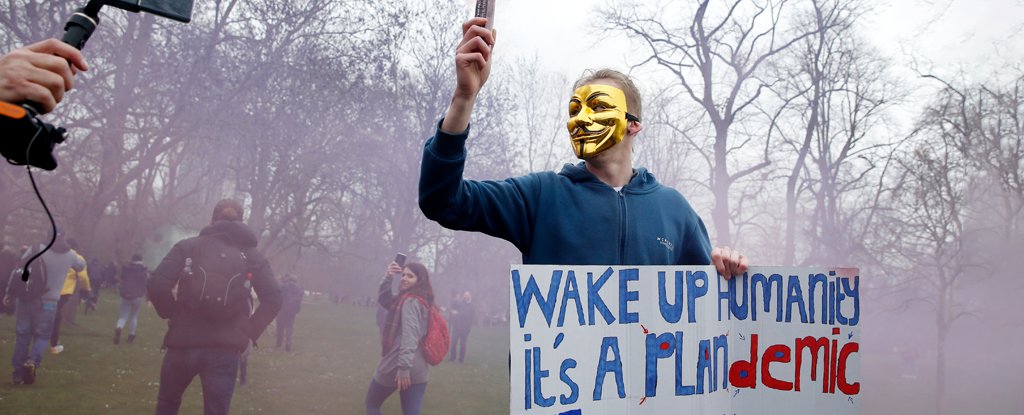Products You May Like
In a time rife with disasters, when more people than ever can find an audience online, conspiracy theories seem to be growing more outrageous by the day. We’re also more prone to believing such things under heightened stress, which is unfortunate given how damaging many of these ideas are proving to our democracies and each other.
Conspiracy theories are killing people.
Some conspiracy theorists pride themselves on being “critical freethinkers,” but a new study showing a trend between lower critical thinking skills and increased conspiracy theory belief suggests this may not be the case.
“Conspiracy theories refer to attempts to explain the ultimate cause of an important event (social, political, climatic, etc.), by accusing a hidden coalition of perceived malicious and powerful people or organizations of having secretly planned and implemented these events,” explain Paris Nanterre University psychologist Anthony Lantian and team in their paper.
Across two studies, the researchers assessed the critical thinking skills of 338 undergraduate students using a French version of the Ennis-Weir Critical Thinking Essay Test. They then scored the students’ tendencies towards conspiracy beliefs and their personal assessment of their own critical thinking skills.
Critical thinking – the objective analysis and evaluation of a situation – requires a collection of cognitive skills. These include the ability to discern relevant versus irrelevant information, think systematically, see other perspectives, recognize and avoid logical fallacies, look beyond the obvious, be aware of and avoid biases and change your mind in light of new evidence.
“The more people believe in conspiracy theories, the worse they perform on a critical thinking ability test,” Lantian told Eric Dolan from PsyPost. “This test is characterized by an open-ended format highlighting several areas of critical thinking ability in the context of argumentation.”
Before anyone gets all superior and blame-y around this, we must keep in mind that some people may not have had opportunities to obtain these skills. This doesn’t mean they’re any less intelligent, just that their lives have not as yet taken them on the critical thinking skill acquiring path. But it’s never too late to learn.
The researchers didn’t find any evidence for a higher (or lower) subjective critical thinking ability (as opposed to that evaluated more objectively by the test) among those who subscribe more to conspiracy theories.
“This is not in line with the cliché of the conspiracy theorists who see themselves as critical thinkers,” Lantian said.
All this is not to say those with high critical thinking skills can’t also be sucked into believing things that may not necessarily align with reality. The way our thinking is wired as an obligatorily social species makes us very vulnerable to believing those we identify with as part of our own cultural group – no matter how much education we have had that boosts science literacy.
Trust plays a massive role in who we believe; we also have a tendency to believe each of us is above average at detecting misinformation (which can’t possibly be true!).
Researchers have also linked this need to feel special to greater belief in conspiracies.
Lantian and team point out that while their study suggests critical thinking lowers people’s chances of believing in unfounded conspiracy theories, the findings don’t determine if these skills can help people detect true conspiracies.
Also, the uniformity of their sample population (all French-speaking undergraduates) means these findings may not necessarily be an accurate reflection across wider society, nor have the researchers demonstrated a causal relationship.
However, previous research has also suggested more highly educated people are less prone to conspiracy beliefs. Another study, specifically designed by Yale University psychologist Dan Kahan and team to untangle within-group bias from levels of understanding, found similar results: Participants who scored highest in science comprehension – which requires critical thinking skills – displayed higher scores in independent thinking.
Kahan and colleagues have also found that curiosity can play an incredibly powerful role in counteracting within-group biases by leading people to consume “a richer diet of information”.
Lantian and team conclude in their paper that “critical thinking ability could help individuals to seek contradictory evidence rather than blindly trusting a conspiracy theory as long as it challenges an established version.”
They hope that this and further research on the topic will help develop better ways to teach more people these vital skills. Critical thinking, along with fostering curiosity and a sense of belonging and community to counteract the forces of cultural biases, may help us nudge each other back towards reality.
This research was published in Applied Cognitive Psychology.
